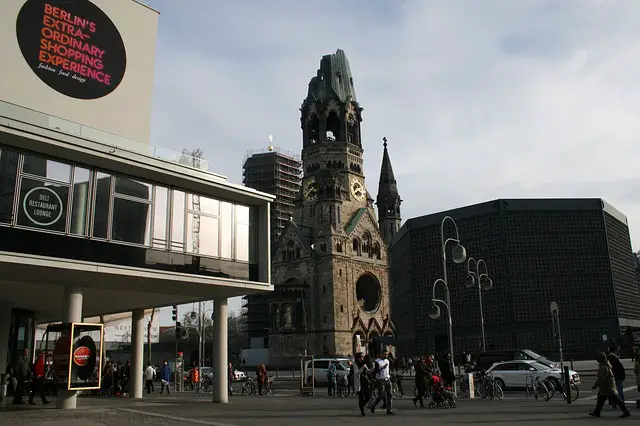
As a global leader in labor laws, Germany consistently offers solid employment protections and benefits for its workforce. Whether you’re already living in the country or considering a job opportunity there, it’s vital to familiarize yourself with your employment rights and entitlements. This article delves into the extensive employment protections and leave rights for workers in Germany, encompassing contract types, working hours, sick leave, vacation time, and parental leave.
Navigating Germany’s Comprehensive Employment Protections and Contract Types
Workers in Germany benefit from robust employment protections, such as minimum wage laws, working hour limitations, paid leave, and health and safety regulations. Expats receive the same protections, but maneuvering through the labor market can be intricate, particularly when it comes to the variety of employment contracts. In this article, we’ll clarify the different contracts and their associated rights and obligations, empowering expats to make well-informed decisions.
Diverse Employment Contract Types in Germany
Fixed-term contracts: These agreements are established for a specific duration, typically terminating automatically once the contract expires. Fixed-term contracts are beneficial for employers needing to hire staff for a particular project or timeframe. However, employees on fixed-term contracts may experience less job security compared to those on open-ended contracts.
Open-ended contracts: These agreements have no predetermined end date, and either the employer or employee can terminate them with notice. Open-ended contracts offer greater job security than fixed-term contracts, as long as the employee maintains satisfactory performance and fulfills job requirements.
Part-time contracts: These agreements apply to employees working fewer hours than the standard full-time hours for their industry. Part-time contracts can be advantageous for employees seeking more flexibility, but they may provide fewer benefits and reduced job security compared to full-time contracts.
Each contract type entails a unique set of rights and obligations, which may vary based on the specific contract terms and any relevant collective bargaining agreements. It’s crucial for expats working in Germany to thoroughly examine their contracts and obtain legal and employment guidance to ensure a comprehensive understanding of their rights and obligations.
Apart from traditional employment contracts, Germany also offers alternative work arrangements, such as freelancing or establishing a business. While these options might provide more flexibility, they generally come with fewer employment protections.
Legal Working Hours and Overtime Regulations in Germany
Germany enforces stringent regulations regarding working hours and overtime for employees. The legal working hours are restricted to 8 hours per day and 48 hours per week. However, in certain situations such as busy periods or emergency work, these limits can be extended to 10 hours per day and a maximum of 60 hours per week.
Employers must guarantee that their workers receive adequate rest and breaks during their shifts, with a minimum of 11 consecutive hours of rest per day and a minimum of 24 consecutive hours of rest per week.
In addition to standard working hours, overtime is also regulated in Germany. Overtime is defined as any hours worked beyond the standard working hours and is subject to different regulations depending on the type of employment contract.
For instance, for employees on a full-time contract, overtime can be compensated with either time off or extra pay. Overtime must not surpass 10 hours per week, and any overtime worked must be documented.
Flexible Working Opportunities
Employees in Germany can request a reduction in their working time, provided a few conditions are met:
- The employee has at least six months of tenure with the company
- The company employs more than 15 employees
- There’s no operational reason to refuse the employee’s request
Additionally, employees should not have asked for a reduction of hours within the last two years and should give at least three months’ notice for their current request.
The government introduced “bridge part-time” legislation in 2019, which limits the reduction of working time to a set period (between one and five years).
Exploring Various Leave Options for Employees in Germany

- Vacation leave
- Sick leave
- Maternity/paternity leave
- Parental leave
- Special leave
It is crucial for expats to understand their rights and entitlements to leave in Germany, as these can vary depending on their contract and the employer’s policies.
- Vacation leave: Employees are entitled to a minimum of 20 days of paid vacation per year, which can increase with years of service or collective bargaining agreements.
- Sick leave: Employees are entitled to take time off work if they are sick or injured. The length of sick leave depends on the severity of the illness or injury, with the employer paying a percentage of the employee’s salary during this time.
- Maternity and paternity leave: Female employees are entitled to up to 14 weeks of paid maternity leave, while male employees can take up to 2 months of paternity leave.
- Parental leave: Employees can take up to 3 years of unpaid parental leave to care for a child. During this time, the employee’s job is protected, and they may be eligible for financial support.
- Special leave: Employees may be entitled to special leave for reasons such as bereavement, marriage, or jury duty. The length of special leave and whether it is paid or unpaid depends on the circumstances and the employer’s policies.
Grasping Notice Periods and Severance Pay
In Germany, notice periods for terminating an employment contract are generally determined by the length of employment.
For employees with less than two years of service, the minimum notice period is four weeks. For employees with longer service, notice periods range from one to seven months.
The exact notice period may also be specified in an employment contract. Notice periods must be given in writing and take effect on the 15th or last day of a calendar month.
Understanding Severance Pay
In Germany, severance pay (Abfindung) is not a legal requirement, but it is common practice in some situations, particularly for higher-level employees or in the case of redundancies.
The amount of severance pay is usually negotiated between the employer and employee and can be based on various factors such as length of service, salary, and reason for termination.
For expats, the terms regarding severance pay should be outlined in their employment contract. Additionally, if an expat is terminated due to a mass layoff or business closure, they may be eligible for additional severance pay under German law, which is calculated based on their years of service.
Comprehensive Employee Protections
Protection from Discrimination
According to the Equal Treatment Act (AGG), employment relationship discrimination is prohibited based on:
- Age
- Disability
- Race
- Religion or belief
- Gender
- Sexual orientation
- Country of origin
However, discrimination and harassment are forbidden regardless, even outside of those characteristics.
Let’s look at what counts as Discrimination. Discrimination is any form of unequal treatment, with a few distinct types recognized by German employment:
- Direct discrimination – treating an individual less favorably because of a characteristic protected by the AGG
- Indirect discrimination – applying a policy, criteria, or practice to all workers in a group, which disproportionately disadvantages those possessing an AGG-protected characteristic or any other unjustified reason, unless the discrimination is objectively justified
- Victimization – dismissing an employee because they took action related to discrimination of a protected characteristic (i.e., submitted a discrimination grievance)
Not every instance of unequal treatment is seen as discrimination. Discriminatory treatment can be justified if the employer shows important and vital work-related requirements.
Protection against Dismissal
The German Termination Protection Act offers employees maximum protection against unfair dismissal. It restricts termination of employment if the employee has been with the company for more than six months.
Termination is only possible based on:
- Behavior such as theft or fraud
- Personal reasons such as long-term illness
- Business reasons such as reducing positions due to restructuring
The employer must give a written, signed notice of termination (original is required, with a scan, telefax, photocopy, or similar, not seen as sufficient) and observe the applicable notice period. The employer does not have to list the particular reason for termination in the termination letter. If a company lays off a lot of employees at once, prior approval by the employment office is required.
Superior protection against unlawful dismissal is extended to handicapped employees, as well as pregnant employees or employees on parental leave. In these cases, employers need to get prior approval from German authorities, which is usually very difficult to obtain. Another special protection is extended to the members of the works council (Betriebsrat) of the company.
The German Termination Protection Act doesn’t apply to companies with ten employees or less.
German labor law governs the relationship between employers and employees in the workplace, encompassing topics such as employment contracts, working hours, wages, holidays, social security contributions, and protection against discrimination and unfair dismissal.
German labor law is characterized by a high degree of protection for employees, including extensive workers’ rights and strong trade unions.
Employers are subject to strict legal requirements and must comply with various regulations to ensure the health and safety of their employees. Violations of labor law can result in fines and legal action.
Thank you for taking the time to learn about German labor law and workplace regulations. We hope this information has been helpful.
If you would like to find out more about working in Germany, such as visa requirements, job opportunities, and cultural insights, please read other articles on our website. We are dedicated to providing the latest news and advice for expats working in Germany.
Thank you for your interest, and we wish you all the best in your career.
Join our Telegram group if you have any further questions. Subscribe below to get notified
[newsletter_form]














